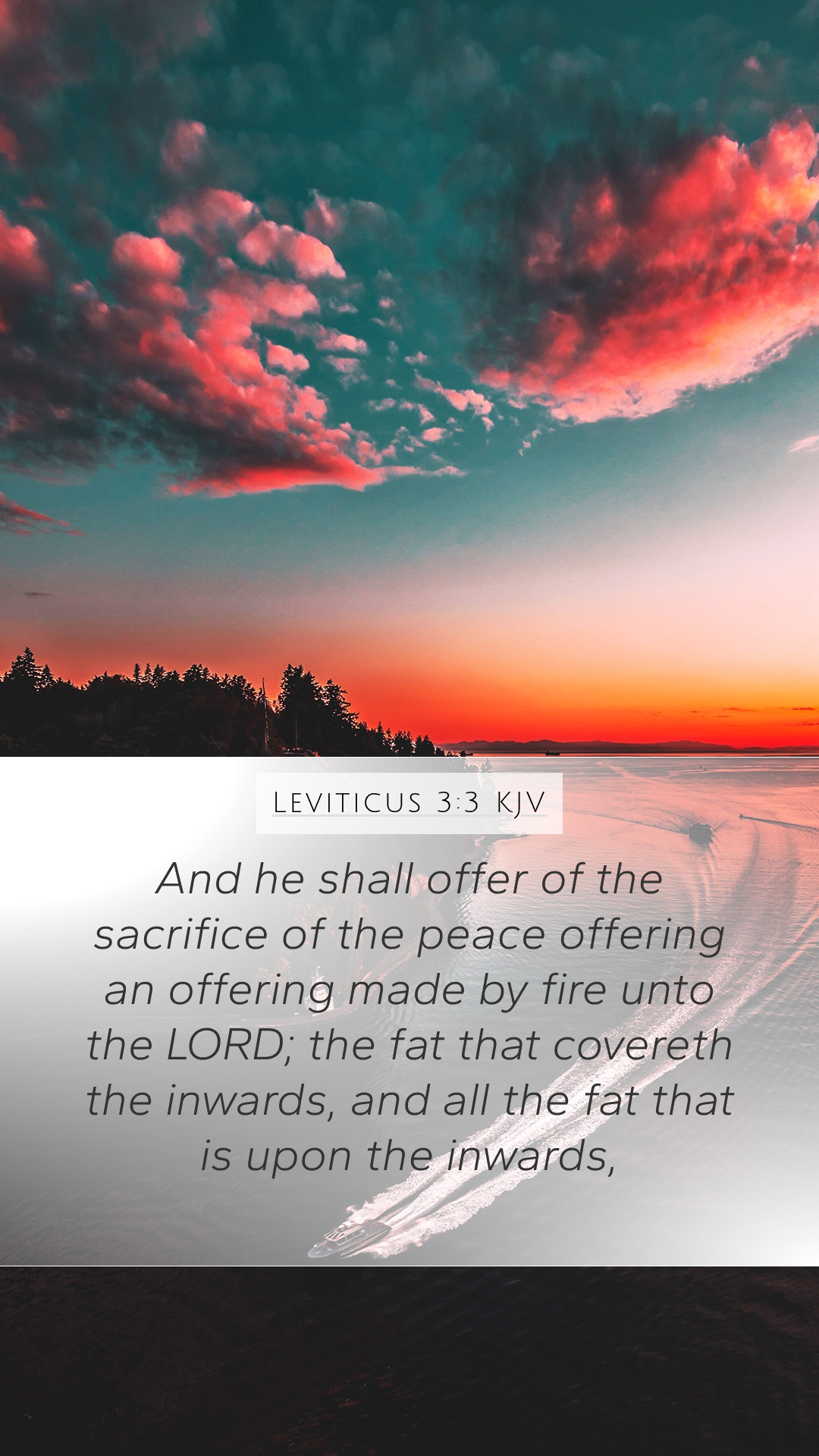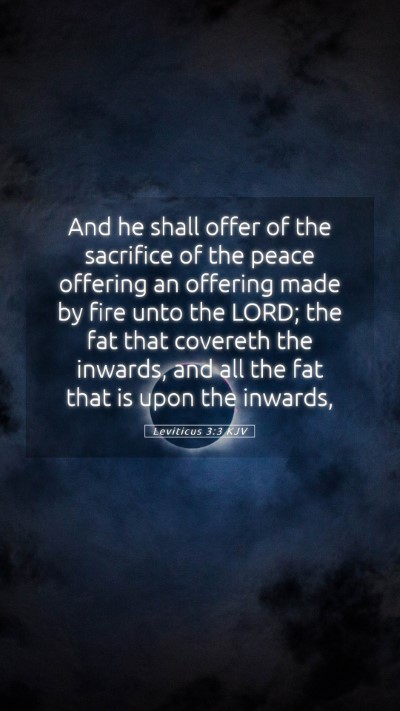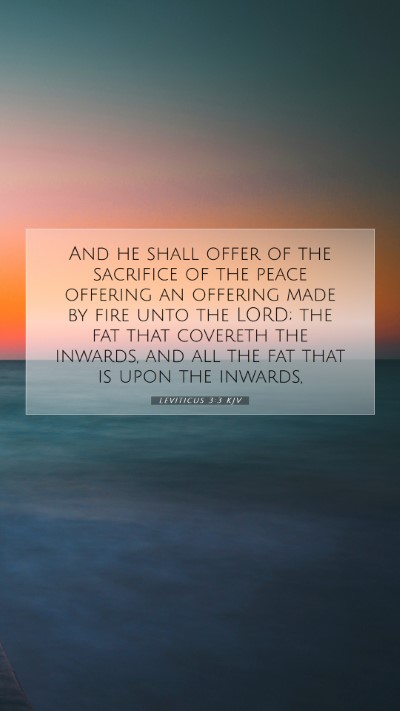Understanding Leviticus 3:3
Leviticus 3:3 states: "And he shall offer of the sacrifice of peace offerings an offering made by fire unto the Lord; the fat that covereth the inwards, and all the fat that is upon the inwards." This verse is located in the context of the laws concerning the peace offerings, which were significant in the worship practices of ancient Israel. Below, we explore the meanings and interpretations of this verse from various biblical commentaries.
Overview of Leviticus 3:3
This verse emphasizes the importance of the fat of the peace offerings, which was considered sacred. The fat represented the best part, symbolizing the notion of offering one's best to God. This standing is further explained through commentary insights.
Insights from Public Domain Commentaries
Matthew Henry's Commentary
Matthew Henry emphasizes that the fat is to be burned on the altar as a pleasing aroma to the Lord. His analysis highlights that these offerings were significant in establishing a relationship between the worshiper and God. The act of bringing the fat portion suggests a heartfelt acknowledgment of God’s provision and goodness.
Albert Barnes' Commentary
Albert Barnes points out that the peace offerings were distinct as they often celebrated God’s favor. He notes that the fat's inclusion in the offerings symbolizes the complete devotion of the offering to God. Barnes elaborates that such offerings represent a communal aspect of worship where the individual and community partake in a sacred act, enhancing their connection with God.
Adam Clarke's Commentary
Adam Clarke delves into the symbolism of fat, explaining that it signifies abundance and richness, reflecting the grandeur of God’s blessings. He further explains that the fat being associated with the inward parts denotes an offering from the heart, establishing an intimate communication with the Divine. Clarke stresses that the peace offering allows the worshiper not only to express gratitude but also to receive God’s peace and reconciliation.
Key Themes in Leviticus 3:3
- Sacred Offerings: The passage focuses on the life of worship through sacrifices emphasizing the importance of what is given to God.
- The Value of Fat: The fat is treated with utmost reverence, representing bounty and God’s grace.
- Community and Peace: The peace offerings were communal, reinforcing the relationship among the worshiping community and God.
- Internal Devotion: The focus on inner parts indicates the necessity for genuine devotion and heartfelt worship.
Application of Leviticus 3:3
For modern believers, this verse can be seen as a call to dedicate the best of our resources to God. The principle of offering one’s best can apply not only to material offerings but also to time, talents, and efforts in worship and service. By understanding this verse, we engage in deeper Bible study insights and enrich our Bible study groups.
Cross References
- Leviticus 7:3: Further instructions on the peace offerings.
- Exodus 29:22: Instructions on offerings made to God.
- Hebrews 13:15: The New Testament reflection on offerings of praise.
Conclusion
Leviticus 3:3 serves as a profound reminder of the significance of our offerings to God. By exploring the meaning of Bible verses and engaging with Bible study tools and Bible study resources, believers can deepen their Bible verse understanding and foster a more intimate relationship with God. This scripture encourages us to not only reflect on our offerings but to seek how we can better align our actions with our faith.


